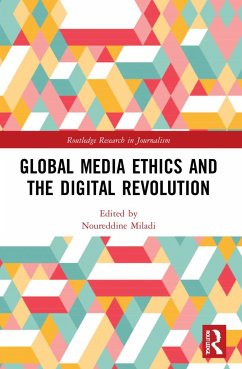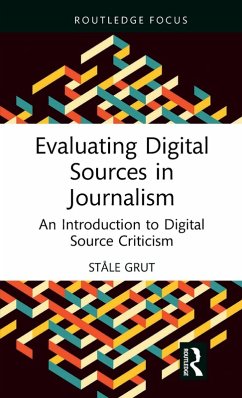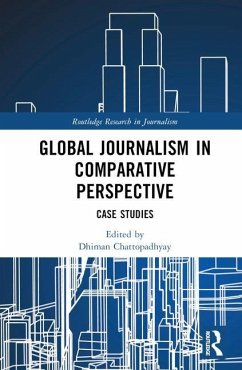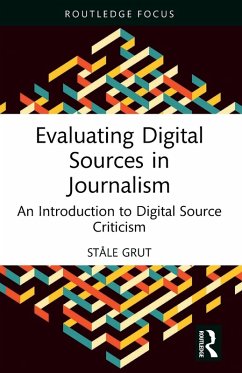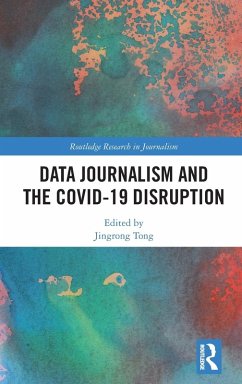
Global Pandemics and Media Ethics
Issues and Perspectives
Herausgegeben: Chari, Tendai; Ndlela, Martin N.
Versandkostenfrei!
Versandfertig in 6-10 Tagen
42,99 €
inkl. MwSt.
Weitere Ausgaben:

PAYBACK Punkte
21 °P sammeln!
This topical volume illuminates ethical issues brought to the fore by the COVID-19 pandemic. Drawing on a broad range of case studies from different regions, it provides insights into the multiple and complex ways in which the pandemic has shaped media ethics.The chapters employ a wide range of innovative theoretical and methodological approaches to dissect enduring and emerging ethical questions during the pandemic, providing lucid accounts of axiological dimensions in pandemic discourses, ethics of emotional mood, ethical challenges and dilemmas in news reporting, propaganda, misinformation,...
This topical volume illuminates ethical issues brought to the fore by the COVID-19 pandemic. Drawing on a broad range of case studies from different regions, it provides insights into the multiple and complex ways in which the pandemic has shaped media ethics.
The chapters employ a wide range of innovative theoretical and methodological approaches to dissect enduring and emerging ethical questions during the pandemic, providing lucid accounts of axiological dimensions in pandemic discourses, ethics of emotional mood, ethical challenges and dilemmas in news reporting, propaganda, misinformation, disinformation and Othering. While the case studies in this book are unique, the authors have extrapolated common strands from their analysis of ethical issues applicable to any other country or region during the pandemic, contributing unique perspectives on how media ethics are circumscribed by global health pandemics.
The book will appeal to researchers, academics and practitioners at all levels in the fields of media studies, journalism, communication, media sociology and public health, as well as general readers and policymakers who are keen to learn more about how global health crises illuminate critical ethical issues confronting the media.
The chapters employ a wide range of innovative theoretical and methodological approaches to dissect enduring and emerging ethical questions during the pandemic, providing lucid accounts of axiological dimensions in pandemic discourses, ethics of emotional mood, ethical challenges and dilemmas in news reporting, propaganda, misinformation, disinformation and Othering. While the case studies in this book are unique, the authors have extrapolated common strands from their analysis of ethical issues applicable to any other country or region during the pandemic, contributing unique perspectives on how media ethics are circumscribed by global health pandemics.
The book will appeal to researchers, academics and practitioners at all levels in the fields of media studies, journalism, communication, media sociology and public health, as well as general readers and policymakers who are keen to learn more about how global health crises illuminate critical ethical issues confronting the media.








